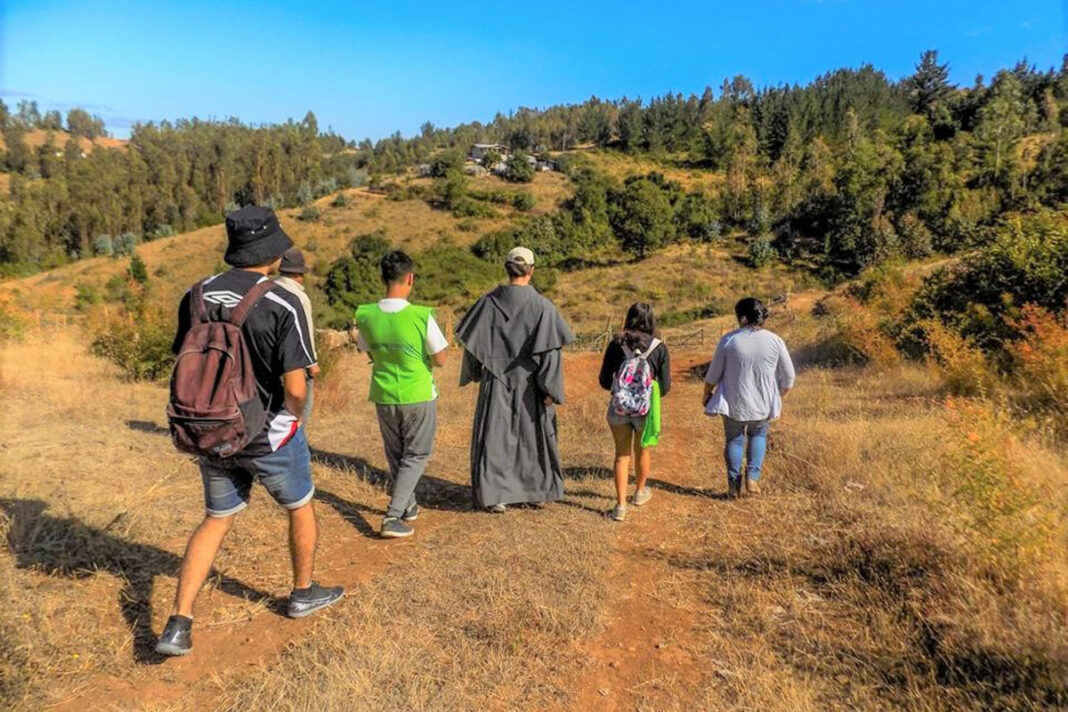Evangelization through the Witness of One’s Life
The approach to being a missionary that the Church proposes in its documents today has a lot in common with the missionary style suggested by St. Francis of Assisi, most importantly, giving witness with one’s own life.
Jesus Christ proclaimed “the Kingdom of His Father” not only by preaching the Word, but also by giving witness with his own life (cf. Lumen Gentium, 35). Moreover, “the witness of a Christian life and good works done in a supernatural spirit have great power to draw men to the faith and to God” (Catechism of the Catholic Church, 2044). In fact, Christians have a duty to show God “by the example of their lives and by the witness of the word, that new man” (Ad Gentes, 11), as Pope St. Paul VI says, noting that bearing witness is the first and most essential means of evangelization, because “modern man listens more willingly to witnesses than to teachers, and if he does listen to teachers, it is because they are witnesses” (Evangelii Nuntiandi, 41).
Undoubtedly, St. Francis was a witness for his time and is still a witness for ours, because even today, he proclaims the “message of Christ” to the world through his friars. Thomas of Celano called him the “new evangelist” who, before going forth to preach to others, submitted himself to the working of the Gospel and allowed his heart to be transformed[1]. As he prayed before the Cross of San Damiano, Francis asked that the darkness of his heart be illuminated and, before he took action, he implored discernment. The Poverello, being unsure of his own path, asked for light from the God who shines with glory and goodness. To start, Francis first had the Good News preached to him. Once he embraced the Gospel, he began to share in what the Lord was revealing to him[2]. Francis was so focused on Jesus, that, despite his predisposition to live a hidden life, he decided to become a missionary. He followed the example of his Master, who was sent by the Father to bring salvation to men. Francis discovered, however, that being a missionary was not primarily about preaching, but about immersing himself in the mission of Christ[3], and thus “live according to the pattern of the Holy Gospel” (Testament, 14; FF 116).
Today’s missionary spirituality also emphasizes the importance of our interior adherence to Christ, because “we cannot understand or carry out the mission unless we refer it to Christ as the one who was sent to evangelize” (Redemptoris Missio, 88).
Francis shared the Gospel with others by proclaiming the Word, but the witness of his life also played a major role in the way he converted others[4]. When he was called to give an example of this witness, he did so concretely. He tried to use his own life to show what the Rule proposed. The Rule reminded the friars that they should preach, above all, by the witness of their actions and their own lives[5]. This recommendation was to be carried out especially in places where people spoke ill of each other and lived sinfully. In such cases, the Friars Minor were to perform good works and have the praise of God on their lips;[6] they were “not to engage in arguments or disputes but to be subject to every human creature for God’s sake and to acknowledge that they are Christians” (Earlier Rule XVI, 6; FF 43). Only then, when they deemed it right, were they to “announce the Word of God, when they see it pleases the Lord” (Earlier Rule XVI, 7; FF 43). Indeed, the early Franciscans, living according to the recommendations of the Rule, were able to draw the attention of others quite easily, not only by the witness of their fraternal life together, but also because of their preference for the least and for those living in poverty. This made them stand out, in contrast to the rest of the world and even some religious circles: “those who saw them were amazed and shouted: ‘We have never seen religious dressed like this.’”[7]
Today, the mindset of the early friars remains as relevant as ever, because “the evangelical witness which the world finds most appealing is that of concern for people, and of charity toward the poor, the weak and those who suffer” (Redemptoris Missio, 42). This Franciscan approach to evangelization is very much in line with what the papal encyclicals currently propose. In the first place, the missionary witnesses with his life (cf. ibid. 42), and thus opens the way for the work of evangelization to be carried out “through the gift not only of the word proclaimed but also of the word lived” (Veritatis Splendor, 107). Giving witness is at the service of faith, because giving witness strengthens and increases faith (cf. Redemptoris Missio, 2). In other words, in order to effectively transmit the faith, prayer and action must be intertwined, especially when evangelizing through the witness of one’s life. “In many cases it is the only possible way of being a missionary” (Redemptoris Missio, 42).
Friar Dariusz MAZUREK,
General Delegate for Mission Animation
For more information on missions, see the Facebook page:
https://www.facebook.com/AnimazioneFrancescana/
See also the Instagram page for the General Secretariat for Missionary Animation:
https://www.instagram.com/sgam_ofmconv/
[1] Cf. Niezgoda, C. Orędzie św. Franciszka z Asyżu wczoraj i dziś, in: Śladami Franciszka. Wybór pism, Cracow 1995, 39.
[2] Cf. Matura, T., Evangelización o acogida del Evangelio por Francisco y sus hermanos, Selecciones de Franciscanismo no. 60 (1991), 335-339, 341-347.
[3] Cf. Hubaut, M., Maleissye, M. Th. De, “Os anunciamos lo que hemos visto”. La experiencia de Dios, fuente de misión. Francisco de Asís, María de la Pasión, Oñate (Guipúzcoa) 1978, 44-45.
[4] Cf. Nguyen van Khanh, N., Cristo en el pensamiento de Francisco de Asís según sus escritos, Oñate (Guipúzcoa) 1993, 216-219.
[5] Cf. Manselli, R. El gesto como predicación para San Francisco de Asís, in: Para mejor conocer a Francisco de Asís, Oñate 1997, 305.
[6] Cf. Esser, K., La orden franciscana. Orígenes e ideales, Oñate (Guipúzcoa) 1976, 300.
[7] Hubaut, M., Francisco y sus hermanos, un nuevo rostro de la misión, Selecciones de Franciscanismo no. 34 (1983), 12.














